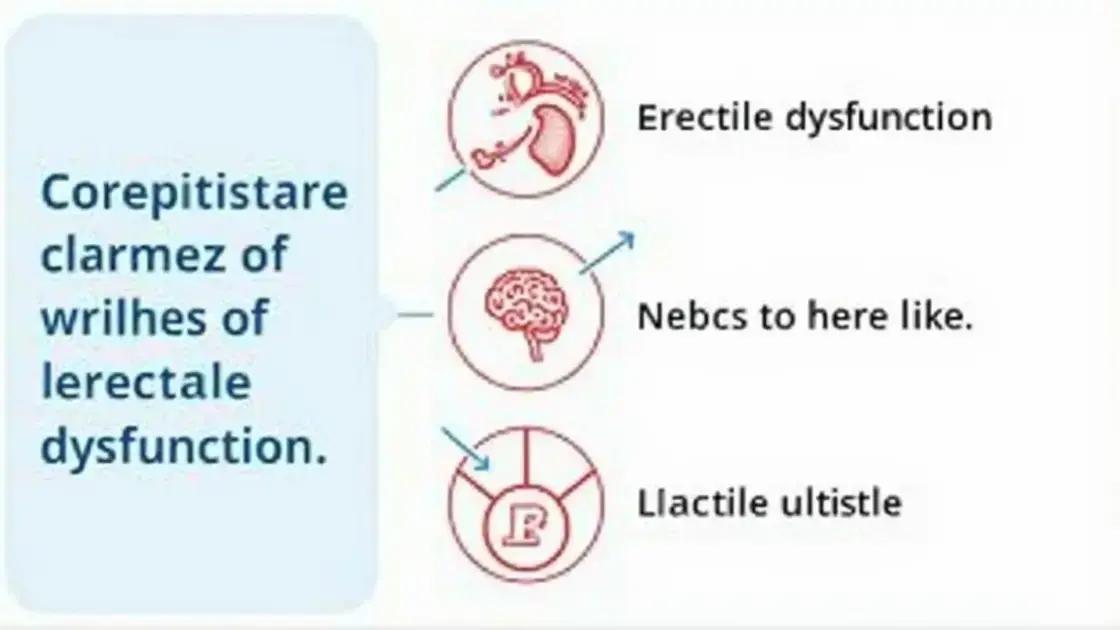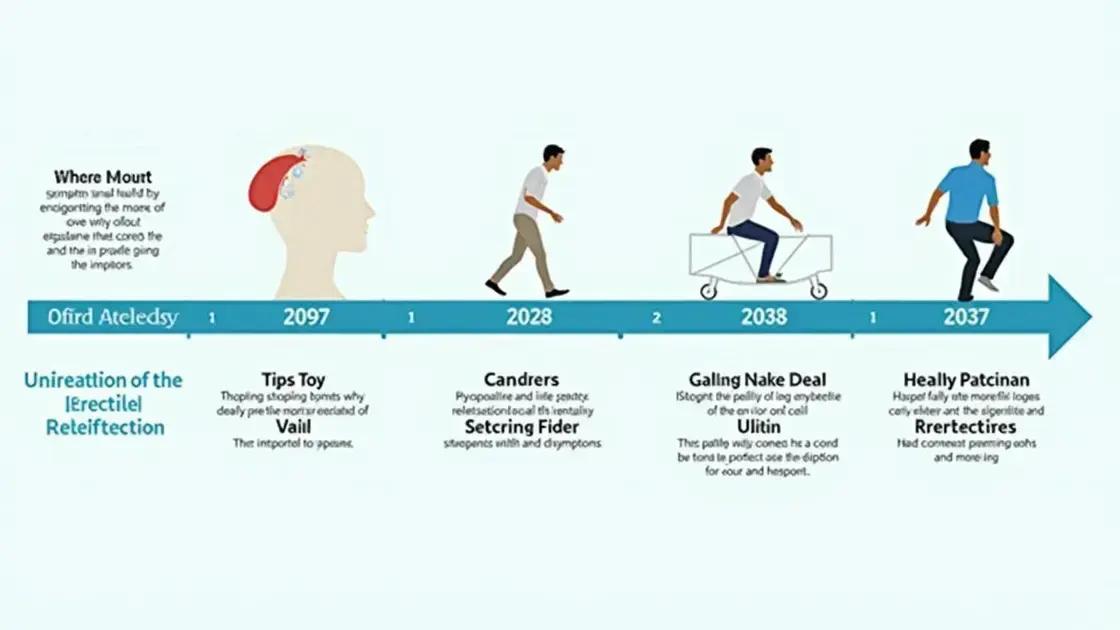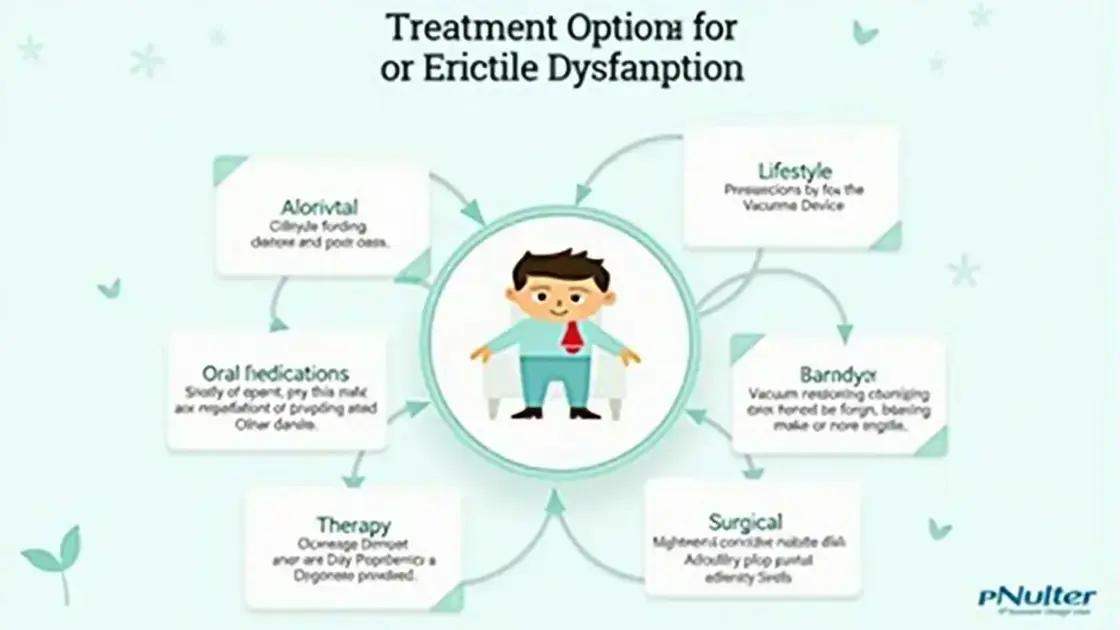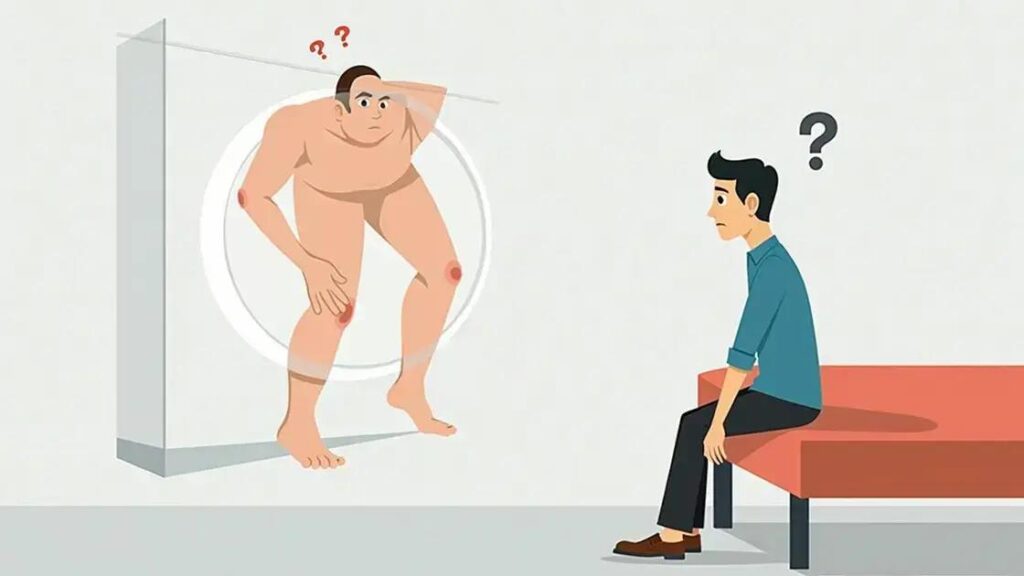Erectile dysfunction (ED) can worsen over time without treatment, resulting in more severe symptoms and potential psychological effects. Common symptoms include difficulty achieving or maintaining an erection, reduced sexual desire, and emotional distress. Various treatment options are available, including lifestyle changes, oral medications, therapy, and surgical interventions. Consulting a specialist is crucial when symptoms persist or impact overall health and relationships.
Erectile dysfunction (ED) is more than just a passing issue; it can signal deeper health concerns. Many individuals wonder, “Does erectile dysfunction worsen over time without treatment?” The reality is that neglecting ED can lead to a decline in sexual health and overall well-being. In this article, we will delve into the progression of erectile dysfunction, explore its potential impact if left untreated, and discuss the importance of seeking help when necessary.
Understanding Erectile Dysfunction

Erectile dysfunction (ED) is a condition that affects many men, yet it remains a topic that is often shrouded in embarrassment and misunderstanding. Understanding erectile dysfunction begins with recognizing what it is: the inability to achieve or maintain an erection sufficient for satisfactory sexual performance.
Causes of Erectile Dysfunction
There are various causes of ED, categorized into physical and psychological factors. Physical causes may include cardiovascular disease, diabetes, obesity, and hormonal imbalances, which can affect blood flow and nerve function. On the other hand, psychological factors such as stress, anxiety, depression, or relationship issues can also trigger or worsen erectile dysfunction.
Risk Factors
Several risk factors can increase the likelihood of developing ED. These include age, lifestyle choices such as smoking or heavy drinking, and certain medical conditions. The risk of erectile dysfunction tends to increase with age, as the body undergoes various changes that can impact sexual health.
Understanding the Importance of Diagnosis
It’s vital for men experiencing symptoms of ED to consult a healthcare provider for diagnosis. A thorough medical evaluation can identify underlying conditions that need treatment, ultimately aiding in managing erectile dysfunction effectively.
Impact on Mental Health
ED can profoundly affect emotional well-being, leading to feelings of inadequacy, frustration, and anxiety. Open communication with partners and mental health professionals can play a significant role in alleviating these feelings, promoting a healthier view of sexual function.
Ultimately, recognizing and understanding erectile dysfunction is the first step towards finding appropriate treatments and improving overall sexual health.
The Impact of Time on Erectile Dysfunction

When asking, “Does erectile dysfunction worsen over time without treatment?” it’s essential to consider the impact of time on this condition. Over time, untreated erectile dysfunction can lead to more severe sexual issues and increase psychological stress for individuals and their partners.
Progression of Symptoms
Initially, erectile dysfunction may manifest as occasional difficulty in achieving or maintaining an erection. However, with time, the frequency of these instances can increase. Men may find that they require more stimulation to achieve erections or may experience a complete inability to erect. Understanding this progression is crucial to recognizing the importance of seeking treatment.
Underlying Health Deterioration
As time passes, the underlying health conditions often associated with ED may also worsen. For instance, diabetes, vascular diseases, and hormonal imbalances can progress significantly, leading to more severe erectile dysfunction symptoms. This deterioration can create a vicious cycle, as each factor can exacerbate the others.
Psychological Effects of Longer Duration
The longer erectile dysfunction remains untreated, the more it can affect a man’s mental health. Issues such as low self-esteem, anxiety, and depression may arise, impacting overall quality of life and intimate relationships. Over time, feelings of inadequacy can reinforce the dysfunction, creating a loop that makes the condition harder to address.
Importance of Early Intervention
Recognizing symptoms early and seeking timely medical advice can make a significant difference. Early intervention can prevent the condition from worsening and tackle any underlying health issues effectively. It’s crucial to understand that ED is not just a sexual health problem but an indicator of overall wellbeing, indicating the importance of addressing it promptly.
Long-Term Outlook
Without treatment, the long-term outlook for erectile dysfunction can be discouraging. Potentially, it could lead to permanent changes in penile tissue, reduced responsiveness, and ongoing emotional challenges. Therefore, taking action sooner rather than later can help mitigate these effects.
Symptoms to Observe

Recognizing the symptoms of erectile dysfunction is crucial for those experiencing alterations in their sexual health. By observing these signs, men can take the first step towards understanding their condition and seeking the necessary help.
Difficulty Achieving an Erection
Many men may start noticing that they have trouble getting an erection, which can happen occasionally but should not be overlooked if it becomes frequent. This symptom can signal the beginning of erectile dysfunction.
Difficulty Maintaining an Erection
Inability to maintain an erection during sexual activity is another common symptom. If sexual performance is compromised due to sudden loss of erection, this issue should be discussed with a healthcare provider.
Reduced Sexual Desire
A decrease in sexual desire or libido can accompany erectile dysfunction. While low libido can stem from various factors, including hormonal changes, it often coincides with difficulties in achieving or maintaining erections.
Changes in Overall Sexual Experience
Observing changes in pleasure or satisfaction during sexual activities may indicate underlying issues. Feeling less enjoyment than before could point towards an emotional or physical cause that warrants attention.
Emotional or Psychological Symptoms
Lastly, symptoms can extend beyond the physical. Many men experience feelings of anxiety, embarrassment, or inadequacy related to their performance. Emotional impacts are valid symptoms that can seriously affect one’s quality of life.
Understanding and recognizing these symptoms enables individuals to address erectile dysfunction proactively and seek treatment options that can improve their sexual health and overall well-being.
Treatment Options Available

When discussing treatment options available for erectile dysfunction (ED), it is essential to recognize that multiple approaches can help improve symptoms. These treatments range from lifestyle changes to medical interventions, catering to different underlying causes of ED.
Lifestyle Changes
Making positive lifestyle changes can have a significant impact on erectile dysfunction. Regular exercise, a balanced diet, and maintaining a healthy weight can improve blood flow and overall health, reducing ED symptoms. Additionally, cutting down on alcohol consumption and quitting smoking can enhance sexual performance.
Oral Medications
One of the most common treatments for ED includes oral medications, known as phosphodiesterase type 5 (PDE5) inhibitors. Medications like Viagra (sildenafil), Cialis (tadalafil), and Levitra (vardenafil) work by increasing blood flow to the penis, helping to achieve and maintain an erection during sexual activity. These medications are typically taken before anticipated sexual activity.
Therapy and Counseling
If psychological factors contribute to erectile dysfunction, therapy and counseling may be beneficial. Speaking with a mental health professional can address underlying issues such as anxiety, depression, or relationship problems. Behavioral therapy can help build confidence and improve intimacy with partners.
Vacuum Erection Devices
Vacuum erection devices (VEDs) can also provide a physical solution to erectile dysfunction. These devices create a vacuum around the penis, drawing blood into the organ and facilitating an erection. Once sufficient blood is drawn, an elastic band is placed at the base of the penis to maintain the erection during intercourse.
Pennile Injections and Implants
For those who do not respond to other treatments, penile injections or surgical options may be recommended. Injecting medication directly into the penis can induce an erection. In cases where other methods fail, a penile implant may be surgically placed to allow men to achieve an erection on demand.
Each treatment option has its pros and cons. Consulting a healthcare professional is critical to discuss these options and determine the best approach for individual needs and preferences.
When to Consult a Specialist

Knowing when to consult a specialist for erectile dysfunction (ED) is crucial for effective treatment and management of the condition. Recognizing specific signs and symptoms can lead to timely care and improved quality of life.
Persistent Symptoms
If erectile dysfunction symptoms persist for more than a few weeks, it is important to seek help. Occasional difficulties are common, but prolonged issues often signal a need for professional evaluation.
Underlying Health Conditions
Men with existing health conditions such as diabetes, heart disease, or high blood pressure must pay close attention to any changes in sexual function. Consulting a doctor can help ensure that ED is not a symptom of these more serious health issues.
Emotional or Psychological Distress
If experiencing emotional or psychological distress related to erectile dysfunction, seeking therapy or counseling can be beneficial. Mental health professionals can provide support and strategies to cope with feelings of anxiety or depression that may accompany ED.
Impact on Relationships
When erectile dysfunction begins to affect personal relationships or intimacy, it’s essential to consult a healthcare provider. Open communication with a doctor can facilitate discussions about how to address these challenges and improve relationship dynamics.
Interest in Treatment Options
If you are interested in exploring treatment options for ED, it is vital to see a specialist. A healthcare provider can prescribe effective medications and discuss various therapies tailored to individual needs.
By recognizing these signs and understanding when to seek professional help, men can take proactive steps toward managing erectile dysfunction effectively.
In Summary: Addressing Erectile Dysfunction
Erectile dysfunction (ED) is a common condition that can have a significant impact on a man’s physical and emotional well-being. Understanding its causes, recognizing the symptoms, and knowing when to seek help are crucial steps in managing this issue effectively.
With a variety of treatment options available, from lifestyle changes to medical interventions, addressing ED can lead to improved sexual health and overall quality of life. Early consultation with specialists can also help identify any underlying health issues, ensuring comprehensive care.
By taking action and seeking the appropriate treatment, individuals can regain confidence in their sexual health and enhance their intimate relationships.
FAQ – Frequently Asked Questions About Erectile Dysfunction
What is erectile dysfunction?
Erectile dysfunction (ED) is the inability to achieve or maintain an erection sufficient for satisfactory sexual performance.
What are the common symptoms of erectile dysfunction?
Common symptoms include difficulty achieving or maintaining an erection, reduced sexual desire, and changes in overall sexual experience.
What causes erectile dysfunction?
Causes can include physical health conditions (like diabetes and heart disease), psychological factors (such as anxiety or depression), and lifestyle choices (like smoking or excessive alcohol use).
When should I consult a specialist for erectile dysfunction?
You should consult a specialist if symptoms persist for more than a few weeks, if you have underlying health conditions, or if your emotional or psychological well-being is affected.
What treatment options are available for erectile dysfunction?
Treatments include lifestyle changes, oral medications, therapy, vacuum erection devices, and surgical options like penile implants.
Can erectile dysfunction worsen over time without treatment?
Yes, if left untreated, erectile dysfunction can progress, potentially leading to more severe symptoms and emotional distress.












